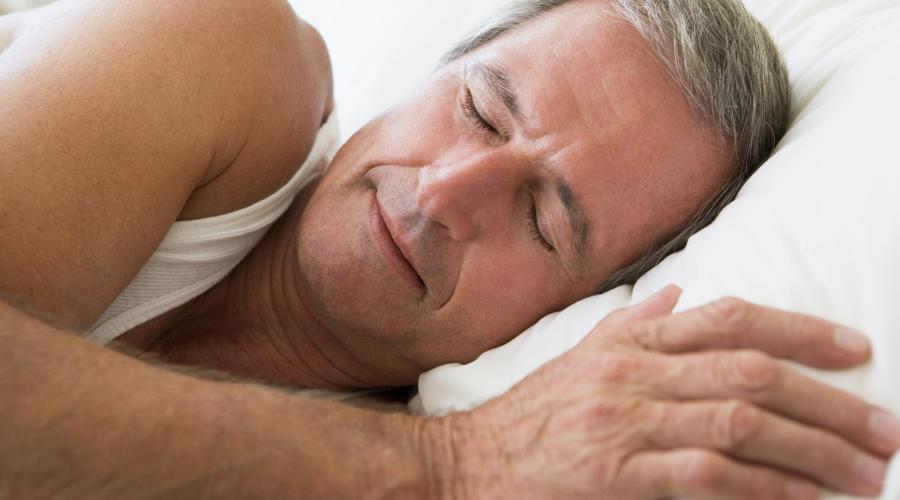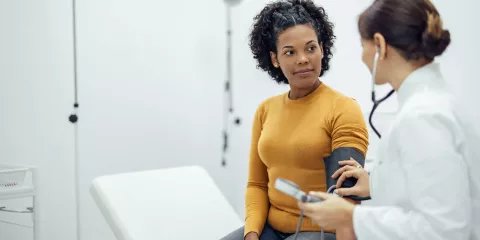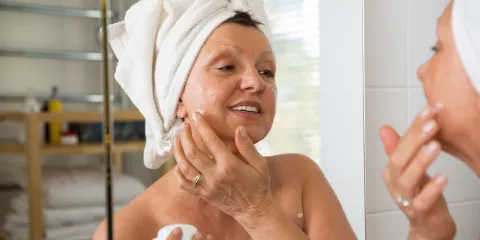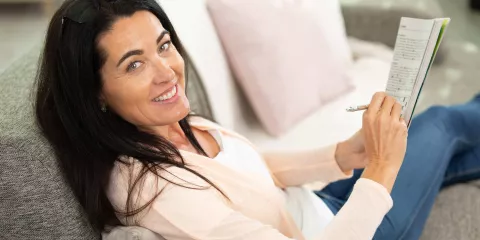
Sleep is critical to healthy living, and it’s easy to feel the positive effects of sleep - is there anything better than waking up relaxed, refreshed, and ready for the day? Unfortunately, about ⅓ of Americans aren’t getting enough sleep, which can negatively impact their overall health 1.In fact, research has shown that poor sleep can have immediate negative effects on your hormones, exercise performance, and brain function 1,2,3,4,5.If you’re having trouble sleeping, whether due to stress, daylight savings time, or some other reason, it’s time to prioritize sleep. If you’re ready for good quality rest, try these tips and tricks for better sleep!
Manage Your Exposure to Bright Light
Your body follows an internal sleep/wake cycle called a circadian rhythm, which can be affected by light and darkness. Getting plenty of bright sunlight during the day helps keep your circadian rhythm healthy and improve your energy levels 6,7,8.According to a study conducted with older adults, getting two hours of bright light exposure during the day can increase sleep efficiency by 80%.
While daylight exposure to bright light helps regulate your circadian rhythm, blue light and bright light at night has the opposite effect. Excessive nighttime light reduces melatonin and other hormones that help you relax and sleep deeply 10, 11.To limit your exposure to nighttime light, turn off electronic devices, like your phone or TV, about two hours before you go to sleep. If limiting your exposure to technology isn’t possible, consider wearing glasses that block blue light or use an app to turn off the blue light on your electronics.
Wind Down Well Before Bedtime
If your nightly routine includes browsing, scrolling, or watching TV, replace it with a relaxing activity that will help your mind and body prepare for sleep. Try reading, listening to calm music, taking a hot bath, or meditating. Experiment with different relaxing activities until you find the one that works for you.
Avoid Caffeine
Many of us need our daily cup (or two) of coffee to kick start our day. But consuming coffee later in the day can have a serious impact on your sleep cycle. One study found that caffeine consumed up to 6 hours before bed can result in significantly worse sleep 12. To get your best night’s rest, put the coffee down hours before you head to bed. And if you have to have that afternoon cup of joe, stick to decaf.
Get Into A Routine. . .And Stick To It!
Having a consistent sleep schedule can regulate your circadian rhythm, help you fall asleep faster, sleep more deeply, and wake up feeling refreshed. While it may be tempting to follow a routine during the week and stay up later on weekends, these changes can throw your circadian rhythm for a loop and make it more difficult to get high-quality sleep 13.
Exercise Regularly
In addition to its numerous benefits, exercise can also help you sleep better. In a study with older adults, regular, moderate-intensity exercise improved both sleep quality and duration 14. Even with severe insomnia, exercise can reduce the time it takes to fall asleep and increase sleep duration 15.
Consider taking CoQ10 in the morning instead of at night
Most people can take the supplement at any time of day since CoQ10 doesn’t give you a burst of energy like caffeine or a cup of coffee. If you have insomnia or already have trouble falling asleep, you may wonder whether you should take Ubiquinol in the morning or night. With that being said, the best time of the day to take CoQ10 depends on your own personal body.
Getting a good’s night sleep is more than just finding a comfortable pillow and mattress - everything from your exercise habits to your caffeine intake can affect your sleep cycle. By following these easy sleep tips, tweaking your daily routines, and experimenting with what works best for you, you’ll be falling asleep fast and staying alseep in no time!
Articles You Might Also Like
References
1 https://www.cdc.gov/media/releases/2016/p0215-enough-sleep.html
2 https://pubmed.ncbi.nlm.nih.gov/17308390/
3 https://pubmed.ncbi.nlm.nih.gov/19955752/
4 https://pubmed.ncbi.nlm.nih.gov/23319909/
5 https://pubmed.ncbi.nlm.nih.gov/25372728/
6 https://pubmed.ncbi.nlm.nih.gov/24394440/
7 https://pubmed.ncbi.nlm.nih.gov/15106233/
8 https://pubmed.ncbi.nlm.nih.gov/18815716/
9 https://pubmed.ncbi.nlm.nih.gov/12789673/
10 https://www.ncbi.nlm.nih.gov/pmc/articles/PMC3047226/
11 https://pubmed.ncbi.nlm.nih.gov/21552190/
12 https://jcsm.aasm.org/doi/10.5664/jcsm.3170
13 https://www.ncbi.nlm.nih.gov/pubmed/122203141












